June 30, 2025
Today’s Classic Quordle Hints & Answers
Attention all wordsmiths and puzzle aficionados! Today's Quordle Classic mode, dated 2025-06-30, presents a quad of conundrums that will test your lexicon limits. The strategic challenge of unraveling four words simultaneously is not for the faint of heart. It beckons the brave, the bold, and the brainy to step up to this linguist's arena where every guess echoes across multiple word grids. Are you ready to accept the challenge and emerge victoriously?
Here's a tip to keep you buoyant amidst the sea of letters: break down the battlefield into manageable parts. Focus on one quadrant at a time and hunt for common letter patterns and word structures. But fear not, noble puzzler, assistance is at hand with the Quordle Solver, your steadfast ally in decoding today's lexical labyrinth. Embrace the challenge with a mix of strategy and verve, and remember that each guess brings you closer to the triumphant reveal. Let's conquer today's Quordle with both wit and wisdom!
Hints for Today’s Quordle Classic Puzzle
Word 1 Hints:
- The word has a pattern of one vowel located in the middle and is surrounded by consonants, with the last two letters forming a common English suffix often related to materials or elements.
- This word is a noun and usually refers to a physical substance rather than an abstract concept.
- This term is used in metallurgy and refers to a mass of metal that has been cast into a specific shape.
- You would frequently encounter this term in industries like jewelry making, minting, or when discussing precious metals that have been processed but not yet shaped into final products.
- If someone is referring to a bar of precious metal that could be stored in a vault or traded on the commodities market, this is likely the term they would use. Think of riches and smelting processes.
- The word follows a consonant-vowel-consonant-vowel-consonant pattern.
- This is a verb that often describes the process of deducing or concluding information based on evidence and reasoning.
- It's a term frequently used in logic, science, and detective work, among other fields that involve hypothesis and conclusion.
- You might do this when you read between the lines of a cryptic message or analyze clues at a crime scene to reach a conclusion on what occurred.
- If you have a good guess about what's being hinted at, you're essentially doing what this word suggests.
- The word consists of five letters following the consonant-vowel-consonant-vowel-consonant pattern.
- This word is a noun; it represents a type of living creature.
- It belongs to the category of mammals, specifically, ones that are often recognized for their distinctive snouts.
- These creatures are typically found in the wild, inhabit regions of Central and South America, and are occasionally featured in documentaries about rainforests and grasslands.
- Think of an animal that shares similar size characteristics with a pig but is often noted for its odd-toed hooves and elongated, flexible upper lip.
- Letter pattern hint: This word has a consonant-vowel-consonant-vowel-consonant structure, with the first and last consonants being the same.
- Word type hint: This entry is both a past-tense verb and an adjective, often used to describe being provided with specific information.
- Semantic hint: It falls within the category of knowledge acquisition and information processing.
- Context hint: You might use this term when referring to having been informed about the specific details of a situation, such as in a briefing or a detective scenario.
- Strategic hint: If one has been given the necessary particulars or insights to solve a problem or case, this word would appropriately describe their state of awareness.
Think you’ve cracked it? Or are you still scratching your head? Scroll down for the ultimate reveal—but proceed with caution if you’re still guessing!
Warning: Spoilers Ahead!
This is your final heads-up! If you’re looking for tips or strategies to improve your game but still want to solve the puzzle by yourself, scroll back up now.
Below this section, we reveal today’s answers, so continue at your own risk.
Today’s Quordle Classic Puzzle Answer is…
Ready for the solution? Here’s today’s Quordle answer:
An ingot is a noun referring to a large block of metal, typically oblong in shape, that is poured in a mold and solidified. It is commonly used to store metals like gold, silver, or steel before they are processed into final products. Historically, metal ingots have been a form of wealth storage and are often associated with images of treasure and affluence. The word 'ingot' can be traced back to the 14th century, originating from the Middle English word "ingot," which meant something poured in, probably from the Old English "geotan," meaning to pour. Players might have been challenged by INGOT as it is a less commonly used word outside the manufacturing and financial industries, and it doesn't incorporate high-frequency letters in many English words.
Word #2:To infer is a verb that means to deduce or conclude information from evidence and reasoning rather than from clear statements. In everyday language, it is often used in contexts such as scientific research, detective work, or casual conversation when making assumptions based on observations. For example, if someone is wearing a coat and scarf, one might infer that it's cold outside. The word infer originated from the Latin "inferre," which combined "in-" (into) with "ferre" (carry or bring), essentially meaning to bring in or carry in. In the game, players might have found INFER tricky due to its common prefix 'in-' that can lead to numerous potential words, complicating the guesswork.
Word #3:A tapir is a large browsing mammal, similar in shape to a pig, with a short, prehensile snout. Tapirs inhabit jungle and forest regions of South and Central America, and Southeast Asia. Known for their distinctive snouts and their shy nature, they are the subject of various ecological and conservation studies. The word tapir stems from the Portuguese "anteburro," influenced by the Tupi-Guarani language of South America. Players may have struggled with TAPIR because it is a relatively rare word that is often limited to conversations about exotic animals or biodiversity; it might not readily come to mind.
Word #4:When someone has been clued, it means they have been informed or made aware of something — often something that is not obvious. It is a past tense of the verb 'to clue,' as in 'to provide with clues.' The phrase "to get clued in" is frequently used in English to indicate becoming knowledgeable about a subject. The term 'clue' in itself originates from a variant spelling of 'clew,' which meant a ball of thread or yarn. This reference harks back to the myth of Theseus, who used a ball of thread to navigate his way out of the Minotaur's labyrinth. For Quordle players, CLUED might have been a deceptive word to guess, especially if they focused on the more common 'ed' ending, leading to numerous possibilities that could fit, but not the correct one.
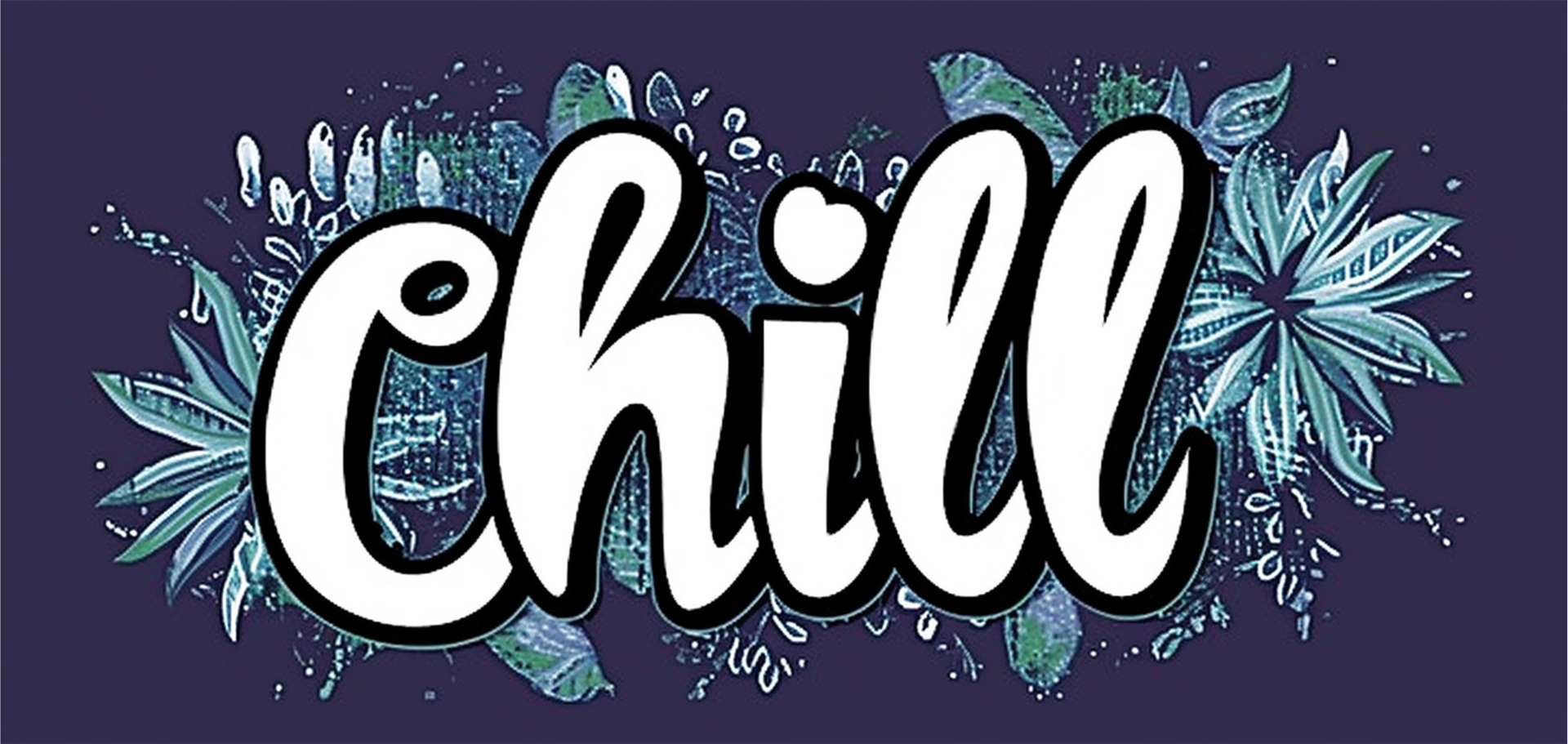
Today’s Chill Quordle Hints & Answers
Take it easy with today's Quordle Chill mode for June 30th, 2025, and remember, with unlimited tries and a helping hand from Quordle Solver, each guess is a new chance to learn and improve—no stress, just fun!
Hints for Today’s Quordle Chill Puzzle
- The word has a consonant-vowel-consonant-vowel-consonant pattern.
- This is a noun and can be something celestial.
- It belongs to the realm of astronomy and can be observed in the night sky during certain periods.
- Often associated with historical omens or celestial events, these can be named after the discoverers or can be recognized by their transient and impressive tails.
- Think of a space wanderer that visits the inner solar system and is known for its glowing trail. It's not a permanent fixture in the sky but makes an appearance now and then, drawing eyes upwards.
- This word has one vowel, which is not in the beginning or the end, and the rest of the letters are consonants.
- It is a noun and refers to an individual involved in specific unlawful activities.
- This term is closely associated with crime and law enforcement.
- One might encounter this type of person in scenarios involving burglary, pickpocketing, or other forms of larceny.
- An individual bearing this title might be adept at taking things that do not belong to them without being noticed.
- The third word has the structure of a single consonant followed by a vowel, then another consonant and finally ends with two more consonants.
- This term is a verb in its base form, but often used as a noun to describe a specific facial expression.
- In terms of emotions, this word pertains to a negative feeling typically displayed through someone’s facial expression.
- When experiencing disappointment, disapproval, or distress, individuals might unintentionally exhibit this behavior, which is observable to others.
- If someone told you a piece of bad news or presented an unfavorable situation, you might instinctively form this expression, which etymologically is linked to exhibiting sorrow or displeasure.
- The word is a five-letter noun with the same vowel at the beginning and in the middle, and it ends with a consonant.
- This noun represents a very popular type of food rather than an abstract concept.
- It belongs to the category of Italian cuisine and is often associated with toppings like cheese, tomatoes, and various meats or vegetables.
- You might order this item while gathering with friends for a casual dinner, celebrating a party, or when you desire a quick and satisfying meal.
- Consider the favorite choice for a movie night meal that can be customized with a wide range of toppings; it often comes in a square or triangular shape when served.
…
Another Warning: Spoilers Ahead!
Just a heads-up! If you’re working on Quordle Chill and want to solve it yourself, now’s the time to scroll back up. The answers are coming up next, so only keep going if you’re ready to see them!
…
Today’s Quordle Chill Answer is…
Here are the answers to Chill mode.
Word #1: COMET
A comet is a small celestial body (noun) that orbits the sun and develops a visible atmosphere or a tail when it gets close to the sun. An example of how "comet" might be used in a sentence is: "The night sky was brilliantly illuminated by the sudden appearance of a bright comet." The word "comet" comes from the Latin word "cometa" which in turn derives from the Greek word "kometes," meaning "long-haired," referring to the tail of the comet. Players may have found "comet" challenging due to the uncommon letter 'C' at the beginning and the mix of common vowels that may lead to multiple guess attempts.
Word #2: THIEF
"Thief" is a noun referring to a person who steals, especially secretly or without open force. It's commonly used in contexts like: "The thief was caught on camera stealing jewelry from the store." The term comes from the Old English word "þēof" which has Germanic origins. The silent 'H' and the uncommon 'IE' vowel combination can make "thief" a tricky word to guess, especially if the player tries to apply regular phonetic spelling rules.
Word #3: FROWN
The word "frown," a verb, defines the action of furrowing one's brow in displeasure or concentration. In usage, one might say: "She couldn't help but frown at the puzzling riddle." This word comes from the Middle English "frounen," which was possibly influenced by the Old Norse word "fruna." The challenge with "frown" may lie in the uncommon starting consonant 'F' combined with the 'R' and 'W' sequence, which can be less frequently encountered in daily puzzles or vocabulary.
Word #4: PIZZA
"Pizza" is a noun and refers to a popular flatbread dish topped with tomato sauce, cheese, and various toppings, which is baked in an oven. For example, "They ordered a large pepperoni pizza for dinner." The word "pizza" has Italian origins, but the etymology beyond that is unclear, with several theories suggesting connections to Greek, Latin, or Germanic languages. The double 'Z' in "pizza" is unusual in English words, making it a potential hurdle for players not expecting repeated letters.
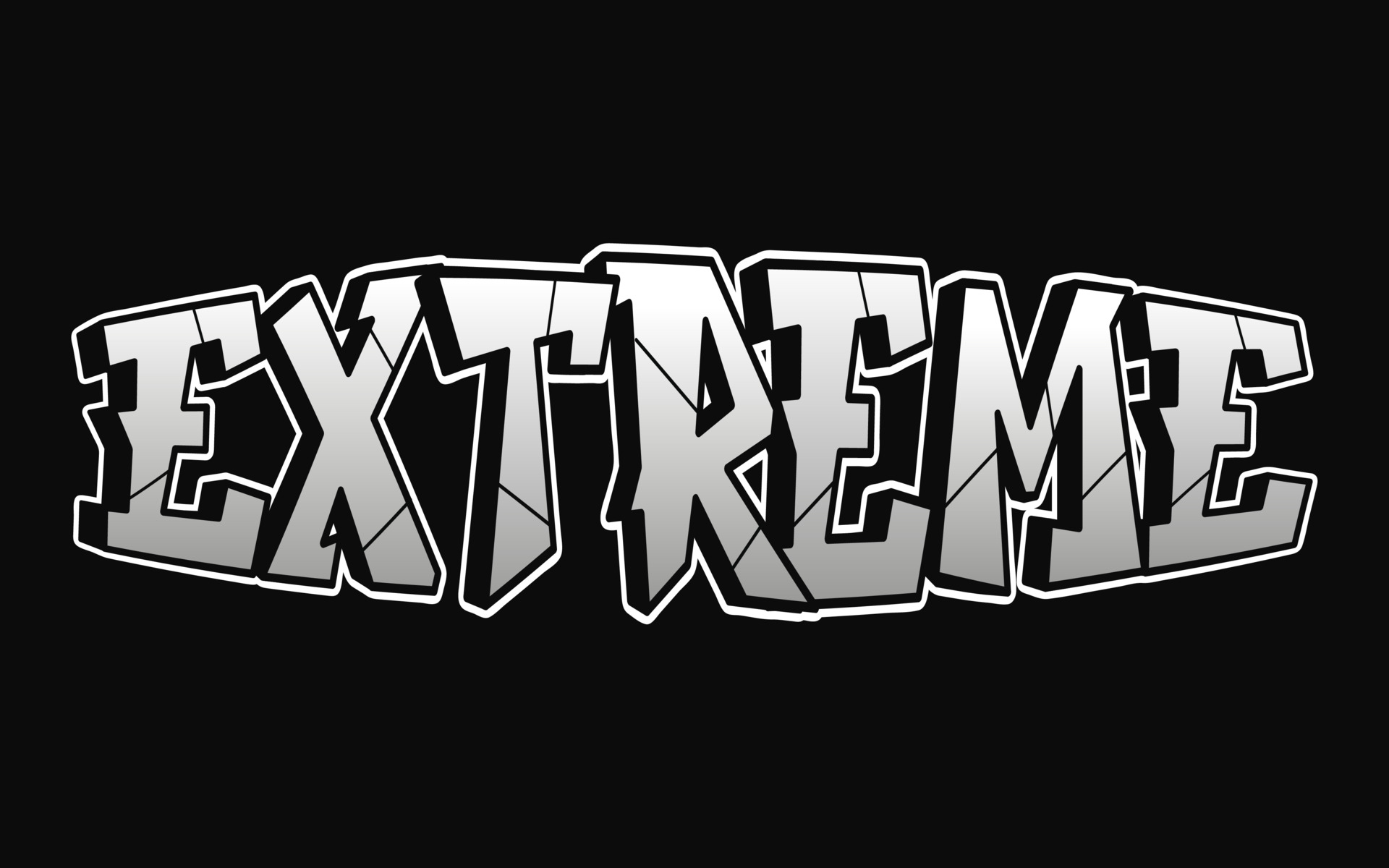
Today’s Extreme Quordle Hints & Answers
Step into the arena of lexicon lords on this thrilling 2025-06-30, where the Quordle Extreme mode beckons the brave—sharpen your strategies with Quordle Solver to conquer today's ultimate word gauntlet.
Today’s Quordle Extreme Mode Hints
Word 1 Hints:
- The first word has one vowel sitting right in the middle of the structure, with all other letters being consonants, framing it at the start and at the end.
- This word is a singular noun and it denotes a physical object rather than a concept or an action.
- It relates to objects that are often used in settings where separation, security, or support is needed; think of hardware or tools.
- You may find this term used in descriptions of items within electronics, agriculture, or in reference to parts of certain animals.
- If you're facing a dilemma and you're trying to grasp at solutions, this word might symbolize the multitude of options poking out towards you.
- The word has a consonant-vowel-consonant-vowel-consonant pattern, with the first and fifth letters being the same.
- This is a noun, often used to describe a collective or group that has a specific purpose or commonality.
- It originates from a term often associated with ancient Rome, but today it could also be linked with certain types of organizations or arrangements.
- You might hear this word in discussions about organized crime or in music where certain groups of notes are identified.
- This word shares its first three letters with a geometric term that signifies a three-sided figure.
- The word consists of five letters with a consonant at the start, a vowel in the middle, and ends with two consonants. There is also a consonant-vowel pair occurring consecutively.
- This word is a verb in the past tense that describes an action completed in the past.
- The term belongs to a general category of motion or movement.
- You might use this word when detailing how something was thrown with force or carelessly.
- Think of what action you might perform when you want to dispose of something quickly, without much care for where it lands.
- The word consists of five letters with the second letter being a vowel and the rest are consonants. Notice the consonants are not repeated.
- This word is an adjective that describes something that is not firmly held or fixed; it might give an impression of instability or insecurity.
- In a broad sense, this term could be associated with physical movement but is often used metaphorically to describe situations, feelings, or conditions.
- You might use this word to describe your feeling during a moment of nervousness or when an object is not steady on a surface.
- This word also rhymes with a common word that might describe someone’s scribbles or a young child’s initial attempt at creating artwork.
…
Last Warning: Spoilers Ahead!
Heads up! If you’re playing Quordle Extreme and still want to figure it out on your own, stop scrolling now. The answers are just below, so only keep going if you’re ready to see them!
…
Today’s Quordle Extreme Answer is…
Ready for the solution? Here’s today’s Quordle answer:
PRONG is a noun that refers to each of the pointed ends of a fork or similar object or tool. Typically used when describing objects like pitchforks, electrical plugs, or anything with a sharp projecting part. A common usage example would be: "He poked the soil with the prong of his gardening fork." The word's etymology traces back to the Middle Low German prange, meaning "stick" or "staff," which signifies something elongated and pointed. In Quordle, the challenge might have come from the unusual consonant cluster "pr" at the beginning of the word and the less common "ng" ending.
Word #2:TRIAD is also a noun and it represents a group or set of three related people or things. It is often used in contexts like music, to describe a group of three notes that form a chord, or in sociology, to describe a group of three individuals. For example: "The secret society was ruled by a triad of powerful individuals." This word comes from the Greek "triás," meaning threefold or triple. In game settings like Quordle, TRIAD could be tough due to its vowel-consonant-vowel pattern, which isn’t the most typical in English.
Word #3:The verb FLUNG is the past tense of fling, which means to throw something forcefully or casually. Common usage includes sentences like: "She flung the book across the room in frustration." This term has Old Norse roots in the word "flengja," meaning to whip or lash, capturing the sense of sudden forceful movement. Players might have been stumped by this word in Quordle because of the unexpected 'ng' consonant blend at the end coupled with the silent 'g,' which is not always intuitive.
Word #4:SHAKY is an adjective that describes a situation, condition, or person as trembling, not firm, or lacking stability. It’s used frequently in sentences like: "His handwriting was shaky after the exhausting ordeal." This word comes from the Middle English "schakyng," which also means to tremble or vacillate. Finding SHAKY in Quordle might have been tricky due to its use of 'y' both as a vowel sound and as a part of the 'sh' digraph—elements not always anticipated when spelling out words.
Quordle Answer History
Curious about previous puzzles? Here’s a look back at some recent answers for reference or nostalgia:
Quordle Classic Answers
| Date | Puzzle # | Words |
|---|---|---|
| Jun 29, 2025 | #1252 | ●●●●● AWOKE ●●●●● SMOKY ●●●●● DEVIL ●●●●● SWING |
| Jun 28, 2025 | #1251 | ●●●●● AWOKE ●●●●● SMOKY ●●●●● DEVIL ●●●●● SWING |
| Jun 27, 2025 | #1250 | ●●●●● SPEAK ●●●●● EAGLE ●●●●● AVERT ●●●●● SUING |
| Jun 26, 2025 | #1249 | ●●●●● SLUMP ●●●●● REBUS ●●●●● GUAVA ●●●●● MONEY |
| Jun 25, 2025 | #1248 | ●●●●● QUALM ●●●●● SQUIB ●●●●● AXIAL ●●●●● FLACK |
| Jun 24, 2025 | #1247 | ●●●●● QUALM ●●●●● SQUIB ●●●●● AXIAL ●●●●● FLACK |
| Jun 23, 2025 | #1246 | ●●●●● PIXEL ●●●●● FJORD ●●●●● STEAL ●●●●● EXIST |
| Jun 22, 2025 | #1245 | ●●●●● BUDDY ●●●●● GROUT ●●●●● BEGIN ●●●●● MADAM |
| Jun 21, 2025 | #1244 | ●●●●● BUDDY ●●●●● GROUT ●●●●● BEGIN ●●●●● MADAM |
| Jun 20, 2025 | #1243 | ●●●●● BRAID ●●●●● DULLY ●●●●● HASTE ●●●●● LURID |
Quordle Chill Answers
| Date | Puzzle # | Words |
|---|---|---|
| Jun 29, 2025 | #1252 | ●●●●● BULLY ●●●●● PRESS ●●●●● PARTY ●●●●● AGING |
| Jun 28, 2025 | #1251 | ●●●●● BULLY ●●●●● PRESS ●●●●● PARTY ●●●●● AGING |
| Jun 27, 2025 | #1250 | ●●●●● SWEAT ●●●●● GRIPE ●●●●● FAVOR ●●●●● BLANK |
| Jun 26, 2025 | #1249 | ●●●●● WHEEL ●●●●● SPRAY ●●●●● TOAST ●●●●● DONOR |
| Jun 25, 2025 | #1248 | ●●●●● PURGE ●●●●● CRAWL ●●●●● NEWLY ●●●●● NINJA |
| Jun 24, 2025 | #1247 | ●●●●● PURGE ●●●●● CRAWL ●●●●● NEWLY ●●●●● NINJA |
| Jun 23, 2025 | #1246 | ●●●●● SPOON ●●●●● TRACE ●●●●● DAILY ●●●●● BLINK |
| Jun 22, 2025 | #1245 | ●●●●● HEAVY ●●●●● YOUTH ●●●●● MAYOR ●●●●● HARDY |
| Jun 21, 2025 | #1244 | ●●●●● HEAVY ●●●●● YOUTH ●●●●● MAYOR ●●●●● HARDY |
| Jun 20, 2025 | #1243 | ●●●●● CABIN ●●●●● CHILD ●●●●● PENNY ●●●●● FUDGE |
Quordle Extreme Answers
| Date | Puzzle # | Words |
|---|---|---|
| Jun 29, 2025 | #1252 | ●●●●● SQUID ●●●●● ENJOY ●●●●● WIMPY ●●●●● OCTET |
| Jun 28, 2025 | #1251 | ●●●●● SQUID ●●●●● ENJOY ●●●●● WIMPY ●●●●● OCTET |
| Jun 27, 2025 | #1250 | ●●●●● TOTEM ●●●●● POESY ●●●●● BLESS ●●●●● SYRUP |
| Jun 26, 2025 | #1249 | ●●●●● FROZE ●●●●● BASTE ●●●●● GAUNT ●●●●● RABBI |
| Jun 25, 2025 | #1248 | ●●●●● GRUFF ●●●●● BLURT ●●●●● CRUMB ●●●●● VIDEO |
| Jun 24, 2025 | #1247 | ●●●●● GRUFF ●●●●● BLURT ●●●●● CRUMB ●●●●● VIDEO |
| Jun 23, 2025 | #1246 | ●●●●● VENOM ●●●●● CHESS ●●●●● FLOUT ●●●●● DROSS |
| Jun 22, 2025 | #1245 | ●●●●● FREED ●●●●● EVOKE ●●●●● LONER ●●●●● DOZEN |
| Jun 21, 2025 | #1244 | ●●●●● FREED ●●●●● EVOKE ●●●●● LONER ●●●●● DOZEN |
| Jun 20, 2025 | #1243 | ●●●●● ATLAS ●●●●● ENACT ●●●●● UNFED ●●●●● MUDDY |

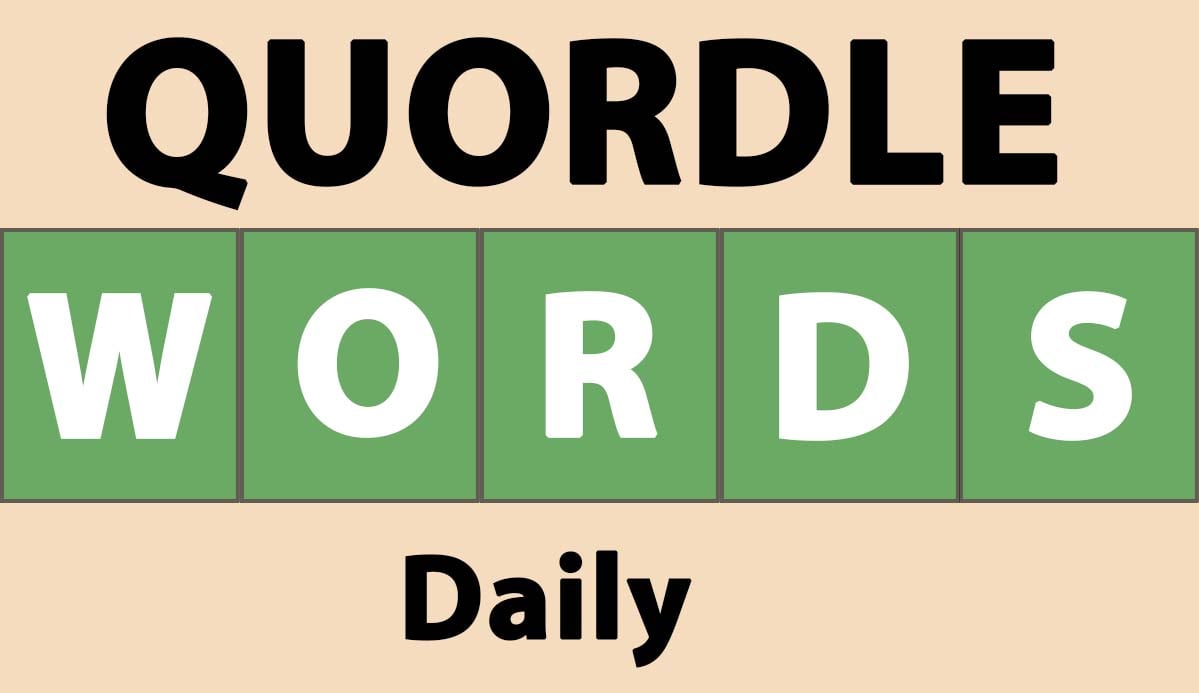

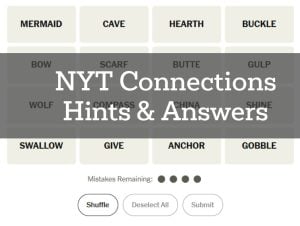
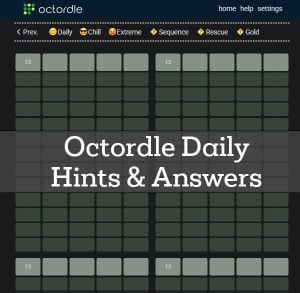
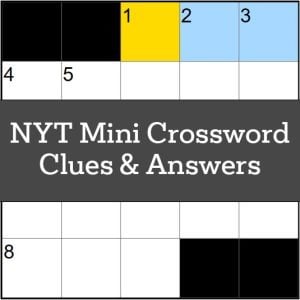
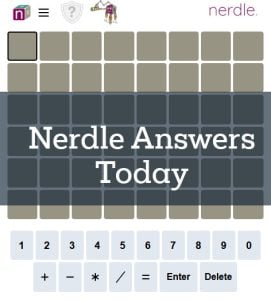
I love these Quordle hints! They make the game so much more fun. Can’t wait to try today’s puzzles!
Thanks for the hints! They really help me get started without giving too much away.
“Chill mode” is perfect for relaxing while still having fun. Thanks for the guidance!
Awesome tips! I’m always looking for ways to improve my game. Thanks for sharing!
Great post! I love how you break down the hints for each mode. Keep it up!
“Quordle” is my new favorite word game, and your hints make it even better. Thank you!
“Spoilers Ahead” is the best warning ever! Thanks for keeping it exciting!
I had so much fun with today’s puzzles! The hints were just what I needed.
“Extreme mode” sounds like a blast! Can’t wait to give it a shot with your hints.
These hints are super helpful! I appreciate the effort you put into making it easier for us!
Wow, this is great! I appreciate the clear warnings about spoilers too. Keep up the good work!
This article is so helpful! I always struggle with Quordle, but these tips make it easier. Thanks for sharing!
I love the hints! They really help me get into the game. Can’t wait to try today’s puzzles!